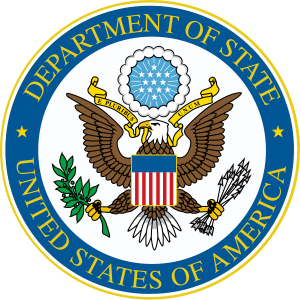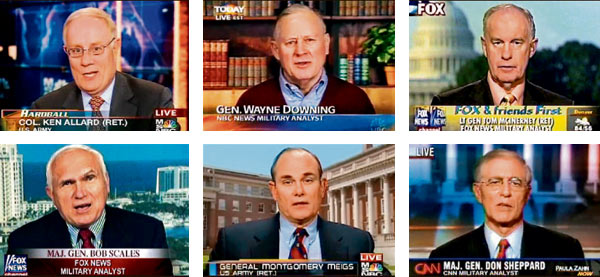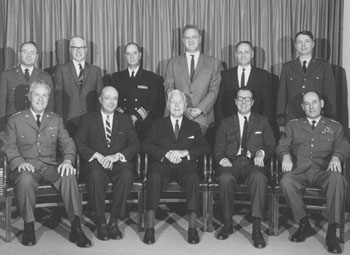To effectively oversee a massive, complex institution like the US military, you need a massive, hierarchical institution composed of people whose job it is to understand that institution. The military itself has an officer’s corps that performs this function. No other institution, inside or outside the government, has the capacity to understand military operations in anything close to their full detail.
 One part of the government that’s supposed to provide a counterweight to the military is the State Department. State had (and still has) thousands of career civil service personnel whose job it is to acquire deep expertise about the culture and politics of specific foreign countries. Many of them had spent years or even decades overseas. And because they weren’t in the military chain of command, they enjoyed relative freedom to express views at odds with the military line.
One part of the government that’s supposed to provide a counterweight to the military is the State Department. State had (and still has) thousands of career civil service personnel whose job it is to acquire deep expertise about the culture and politics of specific foreign countries. Many of them had spent years or even decades overseas. And because they weren’t in the military chain of command, they enjoyed relative freedom to express views at odds with the military line.
And indeed, the “doves” in the Vietnam debate—which is to say the people who understood how badly the war was going—mostly came from the State Department. But while State Department officials could (and did) raise objections to the military’s proposals, they found themselves consistently outgunned by military bureaucrats who had access to far more detailed information about military operations:
It’s conceivable that a better-led State Department could have argued its case more effectively. Certainly Halberstam’s portrays Secretary of State Dean Rusk as a weak and indecisive manager. But I don’t think there was that much Rusk could have done. The bureaucracy in charge of actually executing a given policy is always going to have a tactical advantage in debates over what the policy should be, because it controls the flow of information on which all the other players depend. State department officials tried to point out that indiscriminate bombing would damage our reputation and undermine the war effort. But an argument like that sounds academic if you can’t point to specific examples. And to get specific examples you needed operational information that only the military had.State would see grays, the military blacks and whites; State would see doubts, the military certitudes. And State would always end up being conciliatory; its terms were not as firm and hard and sure as the military’s. INR [the State Department’s intelligence bureau] could never be sure of what it was saying, and somehow the military always seemed sure; they had facts and they had military expertise. Yet at the same time the military was constantly poaching on State’s territory. There was, for example, a major argument over whether or not explosives could close the Mu Ghia Pass. The State people argued that rather than closing it, explosives would widen it (which is exactly what happened). The military was sure explosives could close it. They were experts on explosives, this was their trade, so how could State know—what did State know about bombing?
I promised to resist Afghanistan analogies, but let me just note that you see a somewhat similar dynamic at work today. The military was able to exert significant political pressure on Pres. Obama as he was deliberating about whether to escalate the Afghan War. And I suspect that when historians write about the Afghan war, they’ll find that McChrystal and his fellow generals had even greater influence behind the scenes, as they were the primary source for the information Obama used to evaluate the conflicting options in Afghanistan.
Now, McChrystal might have been right that more troops were needed. At a minimum, I think it’s too easy to say that just because the military was wrong in 1962 that it’s wrong in 2010. But what we can say, I think, is that Pres. Obama needs to always keep in mind that the information he gets is going to be skewed in favor of whatever policy the military brass prefer. He also needs to keep in mind that if things start to go sour, the generals are not likely to tell him about it until it’s too late.
You see the same dynamic at work in the broader national security debate. As Matt Yglesias pointed out a few months ago, the people doing the most in-depth work on military strategy tend to be people with strong ties to the Pentagon and/or defense contractors. Matt focuses on their funding, which is an important consideration, but access to information is also important. Think tankers who are seen as “team players” by the Pentagon are going to find it much easier to get the information they need to flesh out their policy arguments. And this will make analysts making Pentagon-approved arguments seem systematically better-informed than people making arguments the Pentagon doesn’t like.

Similarly, last year the New York Times documented that the “military analysts” you see on cable TV programs tend to have close (and almost always undisclosed) ties to the Pentagon. The tricky thing about this is that it may very well be true that these folks are the most knowledgeable about military strategy. What better way to become an expert than to work in the military for decades? But at the same time, if you want impartial analysis of current policy, you don’t want all of your experts to be people with close ties to the people running that policy.




I’m pretty sure there’s a wider comment about hard-liners on many current issues being black-or-white thinkers, the general tendency of cultural conservatism to obsruct and then fall over when the inevitable occurs, and how that leads to a more painful process of change than the alternative. Indeed, if we took the occasional “let a thousand flowers bloom” sort of argument about state’s rights seriously, that would be one, flawed but real, method of experimentation. But somehow, we only hear state’s rights arguments in very limited contexts, and you do, of course, know what I mean.
There’s also the fact that the civilian departments don’t take their war responsibilities seriously. The military ends up doing jobs that are theoretically the responsibility of State, Justice, etc., because if they don’t the jobs won’t get done. The civilian departments don’t staff for it, don’t budget for it, and don’t organize for it. What little they do is ad hoc.
The fact that State doesn’t hire enough ex-military so they maintain their own pool of expertise, is another way they don’t take their responsibilities seriously.
But what we can say, I think, is that Pres. Obama needs to always keep in mind that the information he gets is going to be skewed in favor of whatever policy the military brass prefer. He also needs to keep in mind that if things start to go sour, the generals are not likely to tell him about it until it’s too late.
But, on the other hand, as Admiral Mullen explicitly stated the other day: http://washingtonindependent.com/79299/the-mullen-doctrine-takes-shape
(and others in the military and the current administration have been saying on and off for a few years now) the Military(TM) understands its limitation wrt 4th gen post-modern COIN war or whatever term one wants to call it. It *wants* the ‘striped pants set’ to be involved, and sometimes, if not most of the time to be actually in the lead.